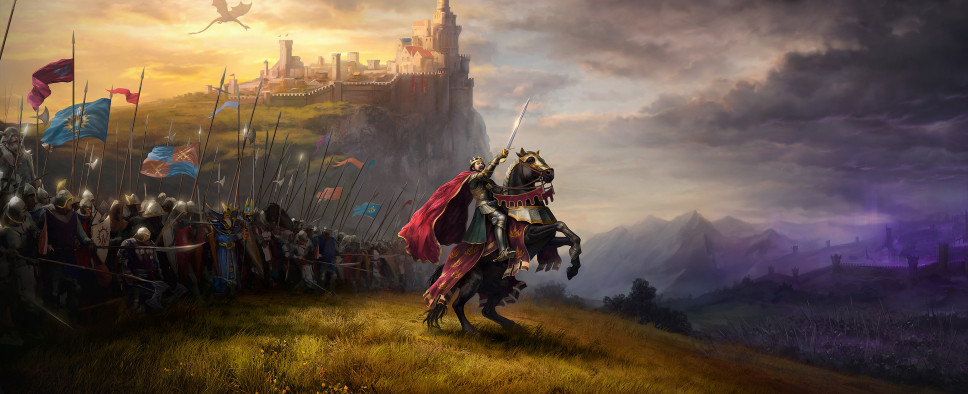King's Bounty II Review
-
Category: ReviewsHits: 13898

Article Index
Introduction
The first King's Bounty game was released in 1990 by New World Computing. I only played it very briefly (and kept dying quickly), but it's considered to be the precursor to the Heroes of Might & Magic franchise. It featured turn-based battles between your army and numerous enemies, but instead of capturing towns and defeating opposing heroes, you were tasked with locating the fabled Sceptre of Order within a time limit to keep King Maximus alive.
When most people talk about King's Bounty, though, they're probably thinking of King's Bounty: The Legend and its three (depending on how you want to count them) follow-ups, which were released between 2008 and 2014. These games kept the same formula as the original, with turn-based battles galore, but they added in extra RPG elements, including skills and quests.
Now we have King's Bounty II from the 1C Company (as both developer and publisher), but I'm not sure which game it's supposed to be the sequel to. King's Bounty: The Legend and its follow-ups where also released by 1C, but the new game includes a lot of references to King Maximus from the original game, and it doesn't mention the other games at all (at least so far as I noticed). But King's Bounty II stays in the same lane as its predecessors, and it continues the franchise's advancement into RPG-land, with a heavier reliance on conversations and quests, and a reduction in battles. Is this change for the better? Keep reading to find out.
Characters and Ideals
As King's Bounty II opens up, you learn that numerous bad things have been happening in your corner of the world: the undead are rising, a blight is spreading, and a city was destroyed under mysterious circumstances. Plus, the king was poisoned, leaving his son in charge. So the prince tabs you, the accused royal poisoner, as the solution, and you're released from prison so you can set everything straight. Does this make sense? Not even remotely, but then writing isn't the game's strong point. (Of course, the game ends with an annoying "to be continued" notice after a major fight, so we don't know the entire story yet. It's possible the prince is really a bad guy with his own agenda. He's certainly been getting a bad guy edit.)
When you create your character, you're given three choices: Katharine the mage, Elisa the paladin, or Aivar the warrior. You can't change your character's name, gender or appearance; there aren't any stats to roll or allocate; and there isn't even a difficulty setting. You just choose your character, and that's it. Mages are good at spellcasting, warriors are good at physical combat, and paladins reside somewhere in between. If you've played any of the earlier King's Bounty games, then the classes should sound familiar.
King's Bounty II uses "ideals" in a lot of ways. There are four ideals -- anarchy, order, finesse, and power -- where anarchy opposes order, and finesse opposes power. Many of the quests give you two ways to complete an objective, where the two ways coincide with two of the opposing ideals. For example, you might steal something (anarchy) or buy it (order), or you might solve a puzzle (finesse) or blindly attack anything that moves (power). Each time you complete an objective associated with an ideal, you gain points for that ideal.
There are four talent trees in the game, one for each ideal. Each tree has ten talents, and all of the talents are passive. As you gain points for an ideal through quests, you unlock talents in that ideal's talent tree, which you can then purchase using the talent points you gain when leveling up. There are more ideal points available than you need to unlock everything in an ideal's talent tree, but not by much, so you need to focus on one or two ideals to unlock the best talents. In general, anarchy talents improve income and trickiness, order talents improve healing and morale, finesse talents improve spellcasting, and power talents improve damage and defense. The talents in all four trees are useful for all characters, so you have to be careful about how you solve quests and spend your talent points, which is nice. Better yet, if you don't like how you've built your character, you're allowed to reset your talent points (but not your ideal points) and re-allocate them.

